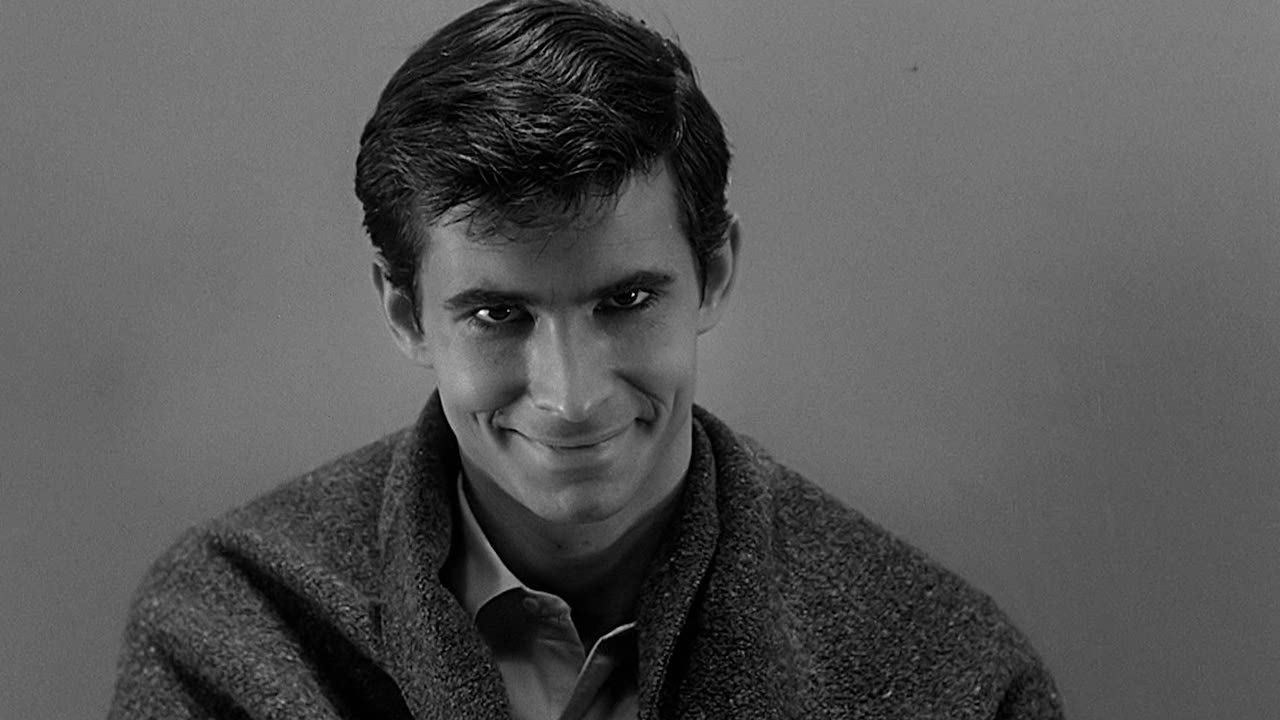
PSYCHO is one of those films I’ve seen a lot. I had a home cinema VHS release in the early 1980s and watched the hell out of it. I flock to any opportunity to see it on the big (or small) screen, have spun around the Bates Motel more times than I care to remember on the Universal Studios backlot tour, and I’ve enjoyed two long sessions with Douglas Gordon’s 24 HOUR PSYCHO at the still unrivalled Spellbound: Art & Film exhibition at the Hayward Gallery in 1996 (a blockbuster show by any definition).
It’s a film whose rhythms, textures and shocks I know very well, but still the chance to see it again – re-released in the UK in a new 4K restoration of the original theatrical edit by distributors Park Circus – was irresistible. But it was also a day of firsts. My first chance to ride the Elizabeth Line into town, a mere 12 minutes station to station which seems even more incredible than the sleek trains and cavernous subterranean architecture. And my first chance to visit The Garden Cinema. I’d bagged myself a lifetime membership in their feted pre-opening salvos in early 2020 but hadn’t yet had a chance to see a film there. It’s a small-scale but sexy-as-all-hell miniature picture palace that’s well worth a visit. The bar area delightfully feels more speakeasy than cinema, and the current main screen packs an audio visual punch.
Getting back to PSYCHO, my favourite thing from this viewing? Possibly Bernard Herman’s amazingly insistent and assertive score. It’s urgent, in your face and agenda-setting. Seeing the film in pristine condition also allowed me to pay a lot of attention to Anthony Perkin’s performance (ahead of our Queer Horror Nights double bill of PSYCHO II & III at The Cinema Museum, 24 July). He really is exceptional as Norman. Hot, nervy and a coiled spring of repression. And Hitch seems to love his jawline as much as the adoring teeny boppers who used to buy his records, one camera shot literally framed from underneath his chin.
As to those cut/restored scenes? Two moments really stood out. We get more of Janet Leigh as Marion Crane in – and, almost entirely out of – her underwear, as glimpsed through Norman’s peephole and neatly amplifying the film’s legendary fan dance with salaciousness. Then, a lingering series of shots of the blood on Norman’s hands as he cleans up after Mother’s mayhem, suggests something of the Lady Macbeth, the indelible stain on Norman and Mother’s souls.
Whilst there will aways be some debate about which genre Hitchcock was forever changing with this film – some true fans hate it when you refer to PSYCHO as a horror, as if the genre tag alone might tarnish Hitchcock’s achievements… – these subtle changes convince me more than ever that it’s horror where the theatrical cut of PSYCHO finds its home.
As to the rest of PSYCHO, I’ve always felt it’s pretty much perfect. One thing that always amazes me when seeing the film in a cinema is how reluctant audiences are to laugh at Hitch’s supporting moments. Both Caroline (Pat Hitchcock) at the start and Mrs Chambers (Lurene Tuttle) towards the middle, deliver some hilarious lines about tranquillisers and the colour of burial gowns (periwinkle blue) that I’m fairly sure Hitch wanted us to laugh out loud at. (Of course, this was entirely lost in Douglas Gordon’s epically slowed down, silent version of the film where every moment was amplified to a state of significant yet snail-paced threat.)
My only problem with the film remains after this viewing as it has done for a lifetime of loving it. I’m not entirely convinced anyone knew how to fully resolve Norman’s dramatic appearance as Mother in the basement. It’s a moment where the fan dance is dispensed with and all that was hitherto suggested suddenly takes a crude lurch into the realm of camp excess. Seeing past the shock of the moment – the calculated theatre of which cannot be denied – Perkins always seems to be trying too hard to make one particular shot work, wriggling out of his wig as he writhes in John Gavin’s arms. Maybe that was Hitch’s attempt at a homoerotic love wrestle, or maybe there’s a deeper symbolic significance in Perkins trying to shed the skin of a character that would forever define him, but I’ve always felt it was worth at least another take…
From a queer point of view, the final information dump by forensic psychiatrist Dr. Richmond (Simon Oakland) does a lot to contextualise Norman’s cross-dressing as evidence rather than cause of a deep-rooted personality disorder following his initial murderous acts. Some people hate this bolted on sequence, but I love how it slows the pace before Mother’s final monologue and that infamous cross-fade to black.

